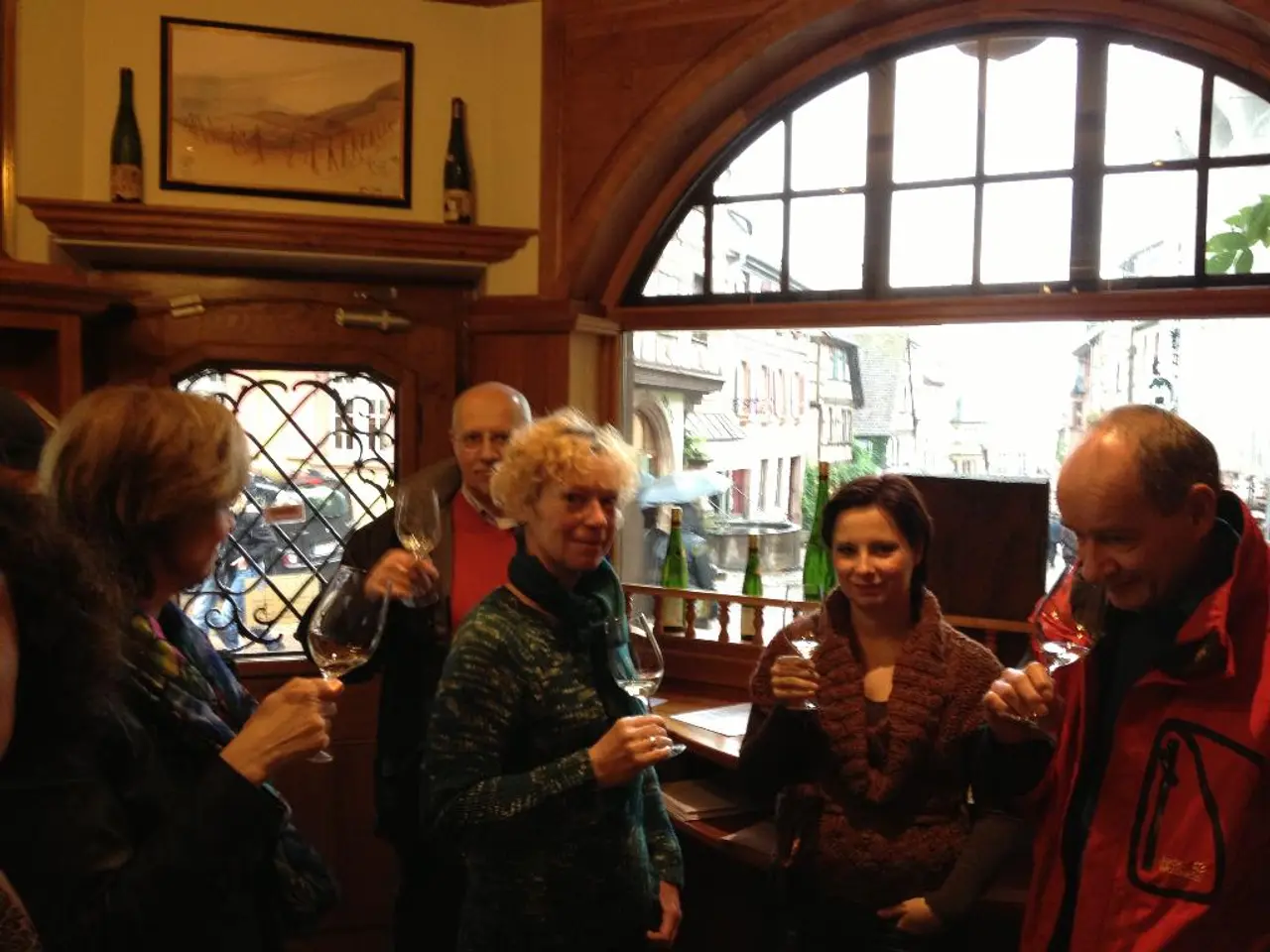Alterations in liquor laws are happening in Kamchatka
In the Russian region of Kamchatka, a significant alcohol reform is underway, aimed at improving the social situation by reducing alcohol accessibility. The reform, led by Governor Vladimir Viktorovich Solodov, targets the high rates of alcohol consumption in the region, where retail alcohol sales per capita stand at 10.5 liters compared to the national average of 6.6 liters.
The city administration's Department of Economic Development and Entrepreneurship has been tasked with exploring alternative trading points and support measures for businesses that may be affected by the new restrictions. Evgeny Beliaev, ready to work with these entrepreneurs, assures that they will receive assistance in finding new trading locations and adjusting to the changes.
One of the key changes is the potential review of the minimum distance between alcohol-selling trade points and residential buildings and social facilities. Municipalities have been granted the authority to determine these distances, with the possibility of stricter regulations in certain areas. For instance, in Petropavlovsk-Kamchatsky and the Elizovsky district, the sale of alcohol in residential multi-apartment buildings will be prohibited from March 1, 2025. Checks on the legality of alcohol trading in residential buildings have already begun, involving specialists from the regional Ministry of Economic Development and law enforcement agencies.
Catering establishments offering alcohol will become illegal if they are within 100 meters of multi-apartment buildings. This change is expected to help reduce alcohol consumption and related crime rates in Kamchatka. In the capital of the region and its nearest neighbor, the minimum distance will increase from 30 to 100 meters.
Entrepreneurs who remove alcohol from their product range can continue trading other goods at the same locations. This move is intended to minimise the impact on businesses while still achieving the reform's objectives.
The reform is part of a broader effort to improve the social situation in Kamchatka. By reducing alcohol accessibility, the region hopes to see a decrease in alcohol-related issues and an overall improvement in the quality of life for its residents. The new requirements for alcohol trading are expected to be fully enforced within one to two months after the regulations are considered.
In conclusion, the Kamchatka alcohol reform is a significant step towards improving the social situation in the region. By reducing alcohol accessibility, the reform aims to help reduce alcohol consumption and related crime rates, ultimately leading to a better quality of life for the people of Kamchatka.








